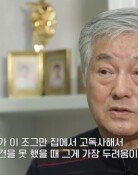[Opinion] Intellectualism During Japanese Colonial Rule
[Opinion] Intellectualism During Japanese Colonial Rule
Posted June. 11, 2007 02:47,
In 1910, the year when Japan forcibly occupied the Korean Peninsula, there were 170,000 Japanese residents in Korea, making up only one percent of the Korean population, estimated at 170 million. Nevertheless, 16 Japanese-language newspapers were published in Korea, while there were only two Korean-language newspapers: The Maeil Shinbo, a daily newspaper published by the Government-General of Korea, and the Gyeongnam Ilbo, both of which printed only less than 3,000 copies. The Korean Peninsula had gone through a long, dark age of the press until the March 1 Independence Movement broke out in 1919 and Imperial Japan permitted the foundation of three Korean newspapersthe Dong-A Ilbo, the Chosun Ilbo and Sisa Shinmunall in the name of cultural rule, in which some aspects of Japanese rule considered most objectionable to Koreans were removed to appease angry Koreans.
Korean newspapers under Japanese colonial rule were what Thomas Jefferson referred to as newspapers without a government. These newspapers were strongly committed to taking the role of the government for their compatriots who had lost their government. This is why the Dong-A Ilbo and the Chosun Ilbo made strenuous efforts for education and enlightenment, the prime examples of which being the establishment of private universities and illiteracy eradication campaigns. During the 1920s, the two major newspapers began holding spring literary contests to defend the Korean language against possible loss.
To spread advanced knowledge and enhance the inner strength of the Korean nation, the newspapers were also active in introducing Western intellectual trends. In October 1922, Lee Gwan-yong, the first Korean to obtain a doctorate in philosophy in Europe, extensively explained the latest trends of Western academia in his 16 article series, Pathological Phenomena of Society, on the first page of the Dong-A Ilbo. Serving as professor at Yonhi College, he later worked as a journalist at the Dong-A Ilbo and the Chosun Ilbo.
The Korean Modern Thought Research Team at Yeongnam University has recently completed its survey on philosophy-related news articles published by Korean newspapers during Japanese colonial rule. The number of philosophy-related articles found amounts to 3,4271,154 from the Dong-A Ilbo, 1,456 from the Chosun Ilbo, and so forth. By publishing quality articles not only on philosophy but also on liberal arts as a whole, these newspapers played a leading role in Koreas intellectual history. The researchers conclusion was: Without newspapers, there would not have been any intellectualism under Japanese colonial rule. The rough and thorny path taken by newspapers without a government playing multiple roles is well illustrated in the fact that during Japanese colonial rule, the Dong-A Ilbo suffered 63 sales bans, 489 seizures and 2,423 erasures. Twenty years after democratization, we may have now recovered the government, but there are still those hoping for a government without newspapers.
Hong Chan-sik, Editorial Writer, chansik@donga.com
Headline News
- Pres. Yoon addresses the nation at a press conference
- LX Group chairman gifts 100 million won to employee family welcoming quadruplets
- Tax-exempt shared offices in rural areas misused as tax havens
- President-Elect Trump promises 'peace through strength'
- French gambler wins 67.2 billion won by betting on Trump’s election win







